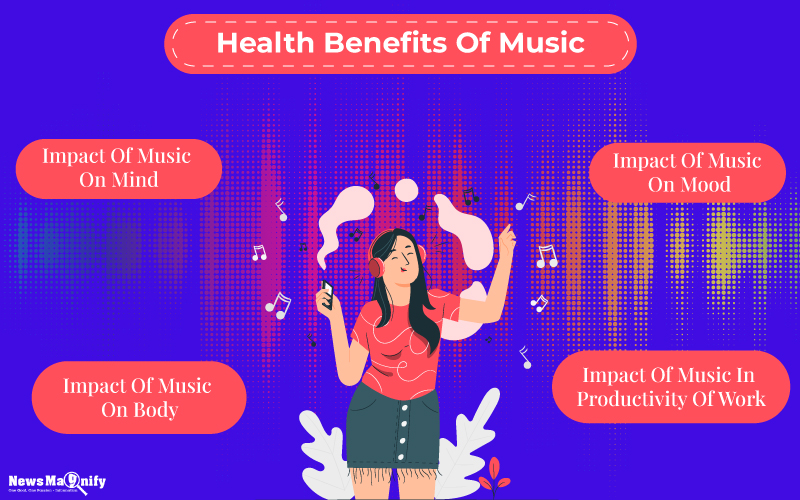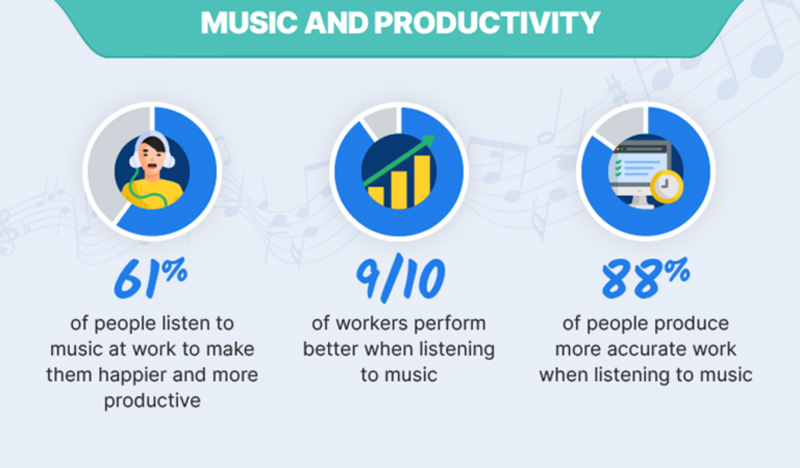
Impact Of Music: Surprising Benefits Many Of Us Don’t Know
- Lifestyle
 Bhanupriya Ramanathan
Bhanupriya Ramanathan- June 21, 2022
- 0
- 12 minutes read
In 2009, archeologists discovered a flute that was made with a vulture’s wind bone while they were excavating a cave in southern Germany. This delicate artifact is the most primitive known musical instrument on earth that indicating that people made it for 40,000 years now. With that, we cannot ignore the impact of music on our lives.
Even though we cannot be sure exactly when humans started listening to music, scientists do have information about why we do. There are several impacts of music. Listening to music benefits us collectively and individually. Here we will have a look at what research has to say regarding the impact of music.
Music Connects Us
According to researchers, one of the most crucial functions of music is to formulate a feeling of cohesion or social association. As per evolutionary scientists, humans may have developed a dependence on music as a tool of communication because our ancestors descended from arboreal species, which means tree dwellers who called to one another across the canopy.
Music always stays as a powerful way to unite people.
- national anthems links crowds at sporting events
- protest songs ignite a sense of shared aim during marches
- hymns create group identity in houses of worship
- love songs allow prospective partners to create a bond during courtship
- lullabies allow infants and parents to develop secure attachments

Impact Of Music On Mind
Music holds the ability to make us dance like nobody’s watching, sing until our throat is sore, and uncontrollably tap our feet. Because there is such a variety of music out there, different music affects people differently. There are numerous benefits of music in our lives and in this section, we are going to talk about the impact of music on the mind.
It Can Lead To Better Learning
Doctors suggest that we listen to music to stimulate our brains. Scientists know that listening to music boosts our brain as they can see all the active areas lights up in MRI scans. Researchers are now aware that just the promise to listen to music can make you interested to learn more. In a study in 2019, people were inclined to learn when they knew they would get to listen to music as a reward.
Music Can Improve Memory
Music also has a positive impact on our ability to memorize. In one research, researchers offered people activities that needed them to read and then recall a short list of words. People who were listening to classical music exceeded those who worked in silence or with white noise.
The same research tracked how quickly people could perform by easily processing activities like matching numbers of geometrical shapes and a similar advantage showed up. Mozart allowed people to accomplish tasks faster and more precisely.
Doctors point out that while music does not reverse the memory loss that people with Alzheimer’s experience, music has proven to show a cognitive reduction, allowing people with moderate or mild dementia to remember portions of their lives.
Music memory is among those brain functions that are most resistant to dementia. That is the reason some caregivers have had success using this creation of nature to calm dementia patients and construct trusting connections with them.
Music Can Improve Mental Health
Mental illnesses that include depression, and anxiety are common these days because of the increased societal, work, and family pressures. But music has a solution to this issue as well. Music is known to have some great cures for mental illnesses. The impact of music on society and its pressure cannot be denied.
Music literally changes the brain. Neurological researchers have seen that listening to music boosts the release of various neurochemicals that have a crucial role in the function of our brain and mental health. So let us see the impact of music on human brain.
- dopamine, which is a chemical linked with pleasure and “reward” centers
- stress hormones such as cortisol
- serotonin and various other hormones associated with immunity
- oxytocin, which is a chemical that boosts the ability to link to others
Even though more research requires to be done to evaluate precisely how music can be utilized therapeutically for treating mental illness, some studies recommend that music therapy can enhance the quality of life and social association for people with schizophrenia.
Impact Of Music On Mood
Various researchers have interviewed groups about why they listen to music. Such users differ widely in respect of age, gender, and background, but they state striking same reasons. One of the most common utilizations of music is that it helps people to regulate their emotions. It holds the power to alter moods and help individuals to process their feelings.
Music Helps To Lower Anxiety
There is a lot of proof that listening to music can calm you in scenarios where you may feel anxious. Studies have proven that people residing in rehab after a stroke seem to be more relaxed once they have listened to music for nearly an hour.
Similar research portrays that music blended well with the sounds of nature allows people to feel less anxious. Even people who face critical illness feel less anxious after a good music therapy.
There is conflicting proof about whether listening to music has an impact on the physiological stress response of your body, however. One study portrayed that the body releases less cortisol, which is a stress hormone when people listen to music. This same study referred to previous research indicating that music had a little measurable impact on cortisol levels.
Music Helps To Lower Depression
A research review in 2017 concluded that listening to music, specifically classical combined with jazz, had a positive impact on depression symptoms, mainly when there were various listening sessions conducted by board certified music therapists.
If you do not like jazz or the classics, you may wish to try a team percussion session instead. A similar research review found that drum circles also had above-average advantages for people who are dealing with depression.
Impact Of Music On Body
Not only the mind but there is also a prominent impact of music on our body as well. On this World Music Day, we will try to cover as many points as possible, to identify the importance of music in our lives.
Music Can Help Your Heart Rate
Music can make your move and the advantages of dancing are pretty well documented. Scientists also know that listening to music can change your breath rate, your blood pressure, and your heart rate depending on the tempo and the intensity of the music.
It Reduces Fatigue
Anyone who has ever rolled down the window of a car and turned on the radio understands that music can be energizing. There is solid science behind the lived experience. In 2015, researchers at Shanghai University discovered that relaxing music helped decrease fatigue and also maintain muscle endurance when people were engaged in a repetitive activity.
Music Can Help Manage Pain
Specifically trained music therapists to employ music to help increase pain in outpatient and inpatient settings. A 2016 meta-analysis of more than 90 studies reported that music helps people handle both chronic and acute pain better in comparison to medication alone.
Impact Of Music On Productivity Of Work

The impact of music on the productivity of work is immense. Music has the potential to influence the way we experience things around us and happy melodies can make our works more enjoyable. If you listen to music while you are working, you are in good company. In fact, as per research, 61% of employees listen to music at work to make them happier and more productive. Studies portray that 90% of workers give a better output when they listen to music and 88% of the employees give more accurate work when they are listening to music. Listening to the music not only boosts the efficiency of the workplace, but it can also enhance your emotional and mental well being.
Conclusion
This infographic is just for your easy understanding. Music exerts a strong influence on the human mind. The impact of music on life is huge. It has the potential to boost memory, construct task endurance, lighten your mood, decrease depression and anxiety, enhance your response to pain, get rid of fatigue, and help you to work out more efficiently. Music is itself a mood that can be celebrated in all moments of life.

